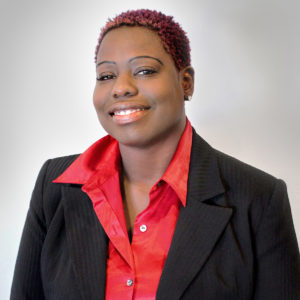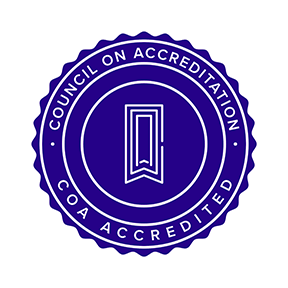

June is considered Lesbian, Gay, Bisexual, Transgender and Queer (LGBTQ) Pride Month, and Trinity Youth Services is proud to support our LGBTQ foster youth and families during this exciting time.
Did you know that research has shown that nearly 1 in 5 foster youth identify as LGBTQ? Many LGBTQ youth have experienced abandonment, or even abuse by their families due to their sexual identity. In cities such as Los Angeles, it has been reported that up to 40% of the homeless youth population are LGBTQ.
For this reason, LGBTQ-identifying youth need loving, non-judgmental parents who are compassionate, understanding, and supportive. For some parents, fostering an LGBTQ youth may seem like a challenge because of the negative stereotypes surrounding the LGBTQ community and traditional religious beliefs that do not support LGBTQ people. If you are on the fence about fostering an LGBTQ child, keep in mind the reason you would be fostering is to help a child have a better future by providing a caring, safe, non-judgmental environment and the support needed to grow and become independent.
If you can have an open heart to give a child space to be who they are, this will help an LGBTQ child thrive academically, emotionally, as well as increase their self-esteem. If you believe that you can support an LGBTQ youth by becoming a foster parent, here are a few tips that can help you create a strong, loving relationship with them.
- Create a safe environment for your child or teen. Let them know that you care about them unconditionally, and that you will be there for them no matter who they choose to love. Make sure your entire family is also on board, and encourage them to be loving to the youth in your home. Include the child in family discussions and activities.
- Find LGBTQ youth groups near you that your youth can be a part of so they will have a safe space to express themselves, create positive friendships and feel a sense of inclusivity. This is especially important because many LGBTQ youth feel alienated, and can suffer from depression, especially if they do not have support outside of the home. One popular group for youth is the Rainbow Pride Youth Alliance (RYPA).
- Find a mentor who is an LGBTQ ally or someone in the LGBTQ community so that your child can have a safe adult to discuss personal challenges that come with being an LGBTQ youth. TruEvolution has a great program for LGBTQ youth.
- Learn more about the LGBTQ community by becoming a member of your local PFLAG group. PFLAG is the largest ally and family organization for the LGBTQ community. You will make friends with other parents who are also raising LGBTQ youth, and can receive support and guidance about helping your child thrive.
- Be sensitive to a child’s pronouns. Just because your child is biologically considered a female, they may not identify as being female. Have a discussion with your child and ask them what they’d like to be called. This will help them feel like you care about them and that you support them.
If you’re interested in supporting LGBTQ youth by becoming a foster parent, please contact Eve Powers at 310-291-3889, or send an email to epowers@TrinityYS.org. Click here for more information about Trinity Youth Services programs or to start your foster care journey now.
 Eve Powers, Foster Care Marketing Specialist
Eve Powers, Foster Care Marketing Specialist
Eve has a strong commitment to helping foster youth and their families thrive and live successful lives. A former foster youth, Eve obtained her bachelor’s and master’s degree in Communications from California State University, San Bernardino, and is a certified Holistic Life Coach, motivational writer, self-help author and celebrity interviewer. Beyond the Trinity Youth Services blog, Eve’s articles can be found in numerous platforms including Foster Focus Magazine, Heart & Soul Magazine, BET Centric and Huffington Post. A passionate advocate for the LGBTQ community, Eve continues to educate, support and mentor foster youth throughout Southern California.


You can empower LGBTQ youth, and help them create happier and successful lives.
There’s no question that Lesbian, Gay, Bisexual, Transgendered and Questioning (LGBTQ) youth face tremendous challenges due to their sexual orientation. Many LGBTQ youth have reported that they have faced neglect or abuse from family members because of their sexual orientation.
According to the National Center for Lesbian Rights (NCLR), over 30% of LGBT youth reported suffering physical violence at the hands of a family member after coming out. Parents, Families and Friends of Lesbians and Gays (PFLAG) studies reveal that between 25% and 50% of homeless youth are LGBT and on the streets because of their sexual orientation or gender identity. Recent studies reveal that some LGBTQ youth who are in foster care can have a difficult time feeling loved or accepted.
According to Florence Edwards, a former LGBTQ foster youth, “Being a youth who identifies as LGBTQ often means being targeted, shamed, abused and abandoned because of who you love. When I was in foster care during my teens, I faced a lot of shame for being different. During my elementary and high school years, I was called names, experienced bullying and harassment every day to the point where I contemplated suicide on a daily basis.
Since I did not have support from teachers or other authority figures, I decided to turn to my pastor for support. When I confided in him about my identity, I was told that I was going to become a pedophile and that I would start looking at young girls when I got older. He also told me that God didn’t like gays. This statement came from a college-educated man who I deeply respected as a father figure. My heart was deeply broken.
When I left church that day, instead of feeling loved, I felt outraged, scared, and angry. I didn’t have the support of a loving caring adult who could help me realize that I had worth even though I was different. I mistakenly believed that God was against me, and that I would be punished for being who I was. I became chronically depressed, socially anxious and suffered from low self-esteem until I received the support I needed to thrive. What helped me turn my life around was joining an LGBTQ group at Cal State University and being around positive people who didn’t judge me and loved me for me,” states Florence.
There are thousands of LGBTQ youth who need your love and support to overcome bullying, shaming, homelessness and hopelessness. Here are a few ways that you can empower LGBTQ youth, and help them create happier and successful lives:
Become a Mentor: If you are open to devoting some of your time to a child or teen, consider becoming a mentor. The Williams Institute at UCLA estimated that out of the 3.2 million LGBTQ youth ages 8 to 18 in the United States, almost 1.1 million have never had a mentor. Deciding to provide love, guidance and support to a child who needs you most, is the best gift you can ever give. You can teach essential life skills, help LGBTQ teens develop positive behaviors, and share your unique experiences that can help them secure a bright future.
Foster or Adopt an LGBTQ Child: There are thousands of children who need loving, supportive families. If you have an open heart, love children, and have space in your home, consider becoming a foster parent. Foster parents can shape a child’s destiny and plays a huge role in teaching them how to trust, form positive bonds, develop self-esteem, and learn how to love and be loved. Studies show that indulging in positive parental behaviors, such as advocating for youth when they are bullied, harassed or mistreated due to their identity were linked to lower levels of substance abuse, suicidal thoughts, depression, and suicide attempts.
Become a Respite Parent: If you aren’t able to care for a child full-time, consider becoming a Respite Parent. Respite Parents are trusted adults who fill-in for foster parents when they need a break from their fostering duties. Respite care typically takes place over a weekend and usually lasts no more than two weeks. You can create your own schedule and make a strong, positive impact in children’s lives. Contact your local Foster Care Agency to apply or to receive more information.
This article was originally published by Curve Magazine. Florence Edwards is the Foster Care Marketing Specialist for Trinity Youth Services, a Foster Care and Adoptions Agency based in Southern California and in Houston, Texas. To learn how to foster or adopt a child, please visit www.TrinityYS.org, or contact Florence directly at fedwards@trinityys.org, or 909-825-5588 ext. 230.




